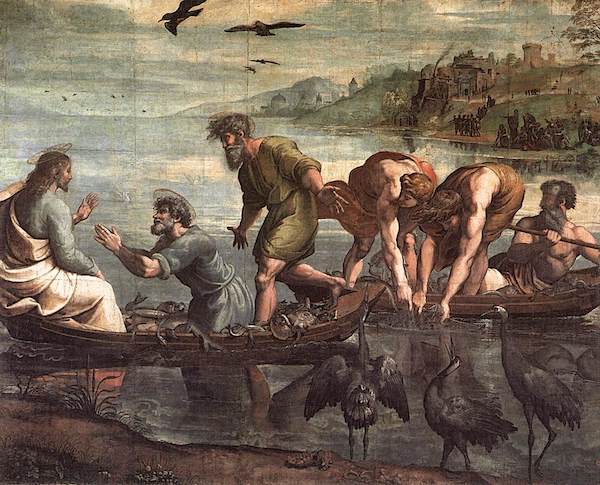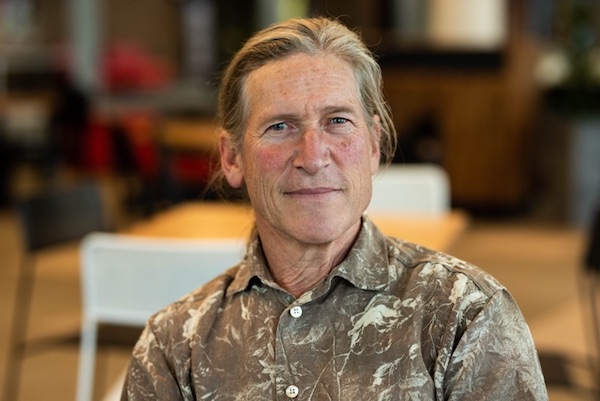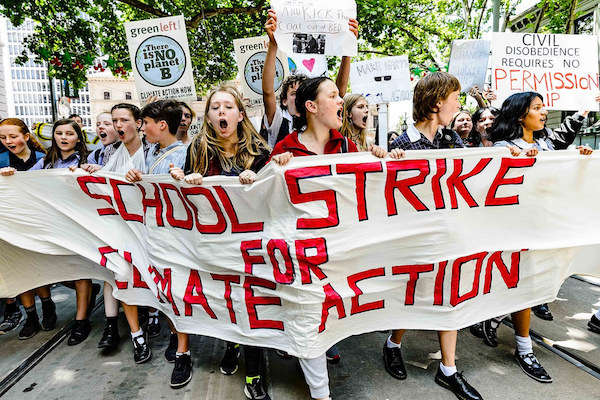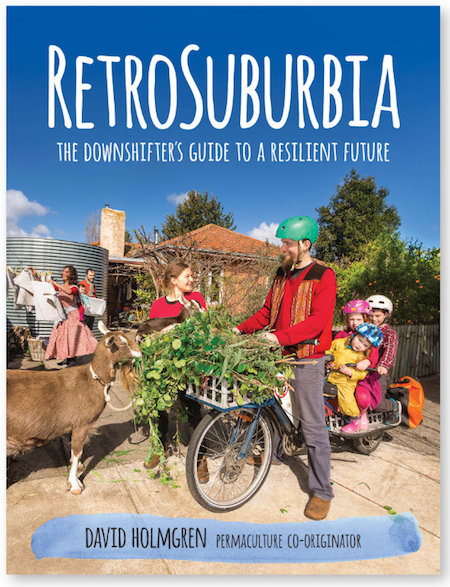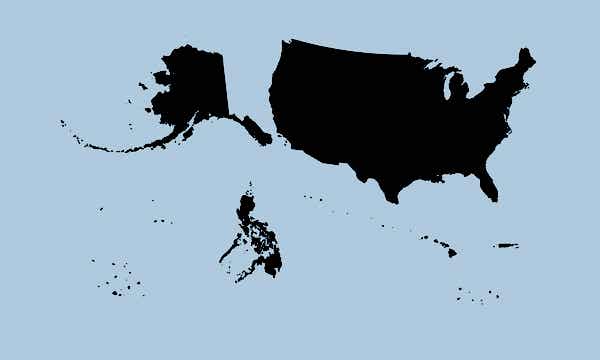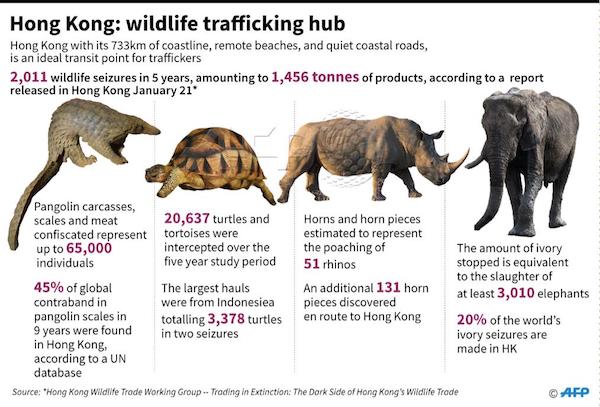
Dorothea Lange Crossroads grocery store and filling station, Yakima, Washington, Sumac Park 1939

No discussion of the Iran situation is worth a grain of salt if it doesn’t include Putin. He called for a conference on Lybia yesterday; Iran is (one of the) next. But yeah, of course China wants to add its two bits as well.
• China Wants To Save Iran Nuclear Deal As It Leaves Their Oil Market Behind (F.)
China’s top foreign policy officials scolded President Trump’s January 3 hit on Iranian general Kassam Soleimani over the weekend, vowing to do what they could to keep nuclear weapons out of Iran’s hands. Geng Shuang, a spokesman for China’s foreign ministry, told the local press on Monday that Iran was basically “forced” to end its commitment to the Joint Comprehensive Plan of Action after the death of Soleimani by drone strike outside of a Baghdad airport last week. Geng said that by doing so, however, they would be in violation of their non-proliferation obligations. The South China Morning Post reported Geng saying that, “China will continue to maintain close communication and coordination with all related parties, and will take relentless efforts” to save the nuclear deal and avoid greater conflict in the Gulf.
The Iran nuclear deal was signed under then-president Barack Obama in the summer of 2015. But the deal has had its critics ever since, with some saying the U.S. was basically bribing Iran not to enrich uranium for nuclear weaponry. Iran has been fighting a proxy war with the United States and its allies since the fall of the Washington-backed Shah of Iran. Soleimani was a lead soldier in that fight, and has since climbed the ranks to lead the elite Quds Force. He was blamed by Washington for leading a militia attack on the U.S. Embassy in Baghdad on December 31. Brent crude oil prices rose to $70 in intraday trading on Monday morning, but have since fallen below $70. Texas crude is still pricing in the low $60s, up half a percent following a rash of pro-Iran militia attacks against U.S. facilities this weekend.
China’s Foreign Minister Wang Yi reportedly held telephone conversations on Saturday with the foreign ministers of Iran, Russia and France, reiterating that China would not back U.S. military strikes on Iran. China, France and Russia are permanent members of the United Nations Security Council. That body has a weapons ban on Iran in place since 2010, set to expire in October of this year. “China will continue to uphold an objective and just position,” Wang said, adding that China will help safeguard “peace and security in the (Persian) Gulf.” On Friday, China’s top diplomat, Yang Jiechi, spoke with Secretary of State Mike Pompeo and urged the U.S. not to start a regional war in the Middle East.
Last week, Russia’s Vedomosti business daily sourced an unnamed diplomat who surmised that Iran would retaliate by blocking free shipping through the Strait of Hormuz. The U.S. Energy Information Administration estimates that roughly 35% of all seaborne traded oil, or almost 20% of oil traded worldwide, goes through that Strait. The Strait curves through the coasts of Oman and Iran and is a key transit route for Saudi Arabian oil into China. China’s imports of Saudi oil have hit a record high of late due to sanctions on Iran and dwindling resources in Venezuela, making that body of water very important to Chinese oil supply. China imported 8.21 million tons of crude oil from Saudi Arabia in November, pushing the total volume for 11 months to a record 76.33 million tons. That’s up 53% from the same period in 2018, based on numbers crunched by Caixin Global..

Don’t worry, the thought police has your back.
• Instagram Says It’s Removing Posts Supporting Soleimani (CNN)
Instagram and its parent company Facebook are removing posts that voice support for slain Iranian commander Qassem Soleimani to comply with US sanctions, a Facebook spokesperson said in a statement to CNN Business Friday. The Iranian government has called for nationwide legal action against Instagram in protest, even creating a portal on a government website for the app’s users to submit examples of posts the company removed, Iranian state media reported. Instagram is one of the few western social media platforms that is not blocked in Iran. Facebook and Twitter are blocked but some Iranians access those sites using VPNs.
In a tweet, Iran’s government spokesperson, Ali Rabiei, called Instagram’s actions “undemocratic.” Instagram shut down Soleimani’s own account on the platform last April after the US government designated the Islamic Revolutionary Guard Corps (IRGC) a foreign terrorist organization. Soleimani was an IRGC commander. “We operate under US sanctions laws, including those related to the US government’s designation of the IRGC and its leadership,” a Facebook spokesperson said in a statement. Iranian soccer player Alireza Jahanbakhsh, who has a verified Instagram account, posted a photo of Soleimani after his death. Jahanbakhsh said Instagram had removed that post.

Would almost like to see them try, but don’t think they will. Too many risks. Can’t just wave around the petrodollar; it’s not made of steel; we know because it’s getting rusty.
• Trump Administration Warns Iraq Could Lose New York Fed Account (CNBC)
The Trump administration this week warned Iraq that it could lose access to its central bank account at the Federal Reserve Bank of New York if Baghdad expels American troops from the region, Iraqi officials told The Wall Street Journal. The State Department’s warning follows the U.S. airstrike that killed Maj. Gen. Qasem Soleimani, Iran’s top military commander and the face of the Islamic Republic’s interventions across the Middle East. The strike led to Iraq’s parliament voting to force out American troops — a move some officials argued would hurt Iraq — and a counterstrike by Iran on two bases housing U.S. troops in Iraq last week. Shutting down Iraq’s account at the Federal Reserve Bank of New York could be detrimental to its financial system.
The country puts its revenue from oil sales there, and takes out that money to pay government salaries and contracts. The Fed held almost $3 billion in overnight deposits at the close of 2018, according to the most recent financial statement from the Central Bank of Iraq. President Trump threatened to place economic sanctions on Iraq after parliament voted to request that Prime Minister Adel Abdul-Mahdi oust about 5,300 American troops. Those sanctions would also extend to Iran. The White House could also end waivers that allow Iraq to buy Iranian gas to fuel generators that supply a large portion of the country’s power, placing another pressure on the prime minister over addressing U.S. troops without enduring economic and financial loss. Mahdi has argued that forcing out American troops is the only way to avoid conflict in Iraq.

Brought to you courtesy of John McCain and Victoria Nuland. This is America.
• Ukraine Tells Israel To Stay Out Of Debate About Nazi Collaborators (JTA)
Ukraine’s ambassador to Israel has told Jerusalem to butt out of the debate about honoring of Nazi collaborators. Thursday’s intervention by Hennadii Nadolenko, head of Ukraine’s diplomatic mission in Tel Aviv, reflects an escalation in the disagreement between Israel and Ukraine over the issue. The subject is related to “internal issues of Ukrainian politics” and Israel’s protests about it are “counterproductive,” Nadolenko told Israeli diplomats, according to the news site Jewish.ru. Last week, Israel’s ambassador to Ukraine, Joel Lion, and his Polish counterpart Bartosz Cichocki wrote officials an open letter condemning the government-sponsored honoring of Stepan Bandera and Andryi Melnyk, two collaborators with the Third Reich.
The two have written on the subject before. In 2018, Lion wrote that he was shocked at an earlier act of veneration for Bandera, saying: “I cannot understand how the glorification of those directly involved in horrible anti-Semitic crimes helps fight anti-Semitism and xenophobia.” Ukrainian diplomats had previously refrained from commenting publicly about Lion’s protests. The veneration of Nazi collaborators, including killers of Jews, is a growing phenomenon in Eastern Europe, where many consider such individuals as heroes because they fought against Russian domination. But few of Lion’s counterparts in those countries have spoken out as forcefully and publicly on this issue.

For Trump, it’s an easy campaign. Bernie is a socialist, Biden is a sleepy flip flop who blackmailed Ukraine, Warren is Pocahontas squared and a socialist, Buttigieg has a closet full of things he hasn’t yet outed, and nobody likes Bloomberg.
• Obama Campaign Guru: Trump Would Love To Run Against Bernie (Pol.)
Barack Obama’s 2012 campaign manager is warning that Democrats would struggle in a general election against Donald Trump if Bernie Sanders is the nominee. In an interview with POLITICO, Jim Messina predicted that Trump would exploit Sanders’ stamp of socialism in battleground states needed to defeat Trump, keep control of the House and have a shot at winning the Senate. “If I were a campaign manager for Donald Trump and I look at the field, I would very much want to run against Bernie Sanders,” Messina said. “I think the contrast is the best. He can say, ‘I’m a business guy, the economy’s good and this guy’s a socialist.’ I think that contrast for Trump is likely one that he’d be excited about in a way that he wouldn’t be as excited about Biden or potentially Mayor Pete or some of the more Midwestern moderate candidates.”
This is not the first time Messina has questioned Sanders’ viability as a general election candidate. His latest remarks come amid Sanders’ first-place showing in the marquee Iowa Poll and as the Vermont senator‘s messaging has increasingly focused on his electability. Messina said he is not endorsing in the 2020 race. He recently attended a fundraiser for Biden in Irvine, Calif., he said, because his wife is a supporter of the former vice president. “From a general election perspective, socialism is not going to be what Democrats are going to want to defend,” Messina added.“If you’re the Democratic nominee for the Montana Senate race, you don’t want to spend the election talking about socialism.”
Messina is the latest Democrat to raise concerns about Sanders at the top of the ticket. Endangered House Democrats are coalescing around Biden because of concerns that Sanders or Elizabeth Warren could threaten their reelection hopes, POLITICO reported Saturday. [..] Sanders surged starting in late October after recovering from a heart attack and receiving a pivotal endorsement from New York Rep. Alexandria Ocasio-Cortez. For more than a week, Sanders has more directly attacked Joe Biden, the national top polling candidate, arguing the former vice president has too much “baggage” to win a general election. Sanders has argued the excitement behind his campaign and his steady dominance in grass-roots fundraising makes him the more electable candidate.

From the Sanders campaign: “Jim Messina’s corporate clients include Google, Uber, AirBNB, a major private equity firm, a major airline that has been fighting its workers’ efforts to form a union, and Third Way, the Wall Street front group whose mission is to destroy the progressive movement.”
The campaign had set January 1st as the starting date for attacking rivals long ago.
• Bernie Sanders Rips Biden Revisionist History On Iraq War Support (WE)
Bernie Sanders’s campaign ratcheted up its attacks on Joe Biden’s claim that he did not support the Iraq War nearly as soon as it started. “It is appalling that after 18 years Joe Biden still refuses to admit he was dead wrong on the Iraq War, the worst foreign policy blunder in modern American history,” Sanders senior adviser Jeff Weaver said in a statement Saturday. “Unlike 23 of his Senate colleagues who got it right, Biden made explicitly clear that he was voting for war, and even after the war started, he boasted that he didn’t regret it.” Biden voted for the Iraq War in 2002 while he was a Delaware senator, but he has claimed several times on the campaign trail that he opposed the effort “from the moment” the March 2003 invasion started.
The then-senator expressed support for the war, saying in July 2003 that he still thought the job was “doable.” In a Senate floor speech, Biden said, “I voted to go into Iraq, and I’d vote to do it again.” He later changed his position. As vice president, Biden oversaw the withdrawal of nearly 150,000 troops from Iraq in 2011, which many argue fueled the rise of the Islamic State. “Bernie Sanders saw the same information and had the judgment to vote against the Iraq War,” Weaver said. “That’s the kind of commander in chief we need — someone with the toughness and judgment to get those calls right, not someone who undermined Democratic opposition, enthusiastically supported a disastrous war, refuses to admit mistakes, and then tries to rewrite history.”
Foreign policy shot to prominence in the Democratic presidential field after President Trump ordered a strike that killed of Iranian Revolutionary Guard Quds Force leader Gen. Qassem Soleimani on Jan. 2, changing the landscape of Middle East policy. Sanders argued that the move puts the United States on the path to another war. Despite flaunting in Iowa last week that his supporters “have not heard me disparage any of the candidates,” Sanders has been increasing his attacks on the former vice president as the the Feb. 3 first-in-the-nation Iowa caucuses loom. “You know, Joe Biden has been on the floor of the Senate, talking about the need to cut Social Security or Medicare or Medicaid,” Sanders said in an interview on Monday. “Joe Biden pushed a bankruptcy bill, which has caused enormous financial problems for working families.”


The worst of this relates to Clapper and Brennan’s Russiagate comments.
• Revolving Door Shills On TV Need An ‘Outing’ (AC)
David Petraeus, Van Hipp, Jeh Johnson, John Negroponte (and these are just the ones featured in Fang’s piece)—all have ties to the Big 5 contracting companies like Lockheed Martin and Raytheon (whose stocks are soaring in response to recent events) and/or work for venture capital firms that invest in these companies. In fact, General Jack Keane, who is reportedly at the elbow of the president, advising him directly, while alternately appearing on FOX News to congratulate him after launching kinetic attacks like killing Gen. Soleimani, currently serves as a partner for such a firm (SCP Partners) and has worked for General Dynamics and Blackwater. [..] key here, according to Fang is this: “Many of the pundits who appeared on national television or were quoted in major publications to praise the president’s actions have undisclosed ties to the defense industry — the only domestic industry that stands to gain from increased violence.”
Whether they are not disclosing their ties to producers or the hosts don’t bother to mention it on air doesn’t matter. It’s called ethics and journalistic integrity. Due diligence. Honesty. None if it seems to be in evidence here. “It is imperative that viewers are aware when their news commentary is coming from someone with a financial incentive tied to the topic they’re coming on, especially when so many lives hang in the balance,” Gin Armstrong, who’s with the Public Accountability Initiative, told Fang. Quite right. This seems so simple, yet this practice of deception—and it is a deception—has been going on for decades. But that doesn’t mean we have to swallow it passively.

Think of all the damage that was done in the run-up to the Iraq War and after the invasion, when former military generals were cultivated by the Pentagon and delivered to the networks and cable shows as commentators for years, helping to sell the war and pacify public opinion when conditions on the ground went sour. The “Afghanistan Papers” revealed last month that hundreds of government officials and military officers knew for years that the war was lost and that the American people were being sold a bill of goods throughout the entire 18-year campaign. By their silence and complicity they served as enablers. How many of them have cycled through the revolving door to the private sector and have served as “experts” in any media capacity (authors, speechmakers, pundits) to promote those lies back to the American people? If they hadn’t, might there be more public pressure to end the war in Afghanistan and bring our troops home (14,000 still there) today?
A chorus of talking heads celebrated Trump’s killing of an Iranian leader. Few of them disclosed their ties to defense contractors. https://t.co/Jn1OSIm7Ft pic.twitter.com/q7zBB6BBsX
— The Intercept (@theintercept) January 11, 2020

Tree-planting anyone?
• Australia’s Fires Pump Out More Emissions Than 100 Nations Combined (MIT)
The wildfires raging along Australia’s eastern coast have already pumped around 400 million metric tons of carbon dioxide into the atmosphere, further fueling the climate change that’s already intensifying the nation’s fires. That’s more than the total combined annual emissions of the 116 lowest-emitting countries, and nine times the amount produced during California’s record-setting 2018 fire season. It also adds up to about three-quarters of Australia’s otherwise flattening greenhouse-gas emissions in 2019. And yet, 400 million tons isn’t an unprecedented amount nationwide at this point of the year in Australia, where summer bush fires are common, the fire season has been growing longer, and the number of days of “very high fire danger” is increasing.
Wildfires emissions topped 600 million tons from September through early January during the brutal fire seasons of 2011 and 2012, according to the European Union’s Copernicus Atmosphere Monitoring Service. But emissions are way beyond typical levels in New South Wales, where this year’s fires are concentrated. More than 5.2 million hectares (12.8 million acres) have burned across the southeastern state since July 1, according to a statement from the NSW Rural Fire Service. Climate change doesn’t spark wildfires. But rising temperatures and decreasing rainfall dries out trees, plants, and soil, converting them into fuel that can amplify fires when they do break out.
A 2018 report by Australia’s national science agency and the Bureau of Meteorology concludes climate change has contributed to the nation’s worsening fire conditions, noting that average temperatures have risen more than 1˚C. In turn, these huge fires are fueling climate change. As trees and plants burn, they release the carbon stored in their trunks, leaves, branches, and roots. That creates a vicious feedback loop, as the very impacts of climate change further exacerbate it, complicating our ability to get ahead of the problem.
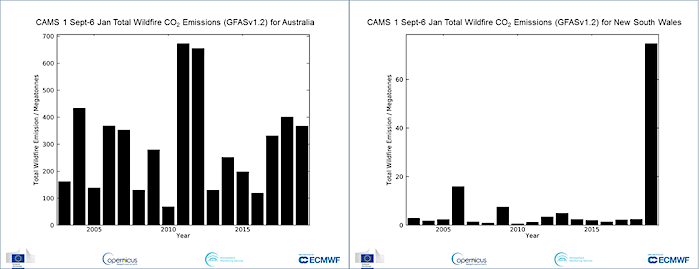
Wildfire emissions from September through early January, nationwide and in New South Wales. Copernicus Atmosphere Monitoring Service

But to be replaced with what? I still haven’t seen an answer to that which makes any sense.
Stay out of Davos, Greta, you’re being bought.
• Greta Thunberg Tells World Leaders To End Fossil Fuel ‘Madness’ (G.)
Greta Thunberg and fellow youth climate campaigners are demanding that global leaders immediately end the “madness” of huge ongoing investments in fossil fuel exploration and enormous subsidies for coal, oil and gas use. The 21 young activists are also calling on the political and business leaders who will be attending the World Economic Forum in Davos to ensure investment funds dump their holdings in fossil fuel companies. “Anything less would be a betrayal against life itself,” said Thunberg and colleagues in an article in the Guardian. “Today’s business as usual is turning into a crime against humanity. We demand that you play your part in putting an end to this madness.”
The burning of fossil fuels is the biggest driver of the climate emergency. Scientists predict catastrophic impacts unless deep cuts in emissions are made rapidly, but global emissions are still rising. “Young people are being let down by older generations and those in power,” the climate strikers said. “To some it may seem like we are asking for a lot. But this is just the very minimum effort needed to start the rapid sustainable transition.” Much of the world’s existing coal, oil and gas reserves must be kept in the ground to avoid the worst impacts of global heating. But investment in fossil fuel exploration and extraction remains high.
Since the Paris climate agreement in 2015, the world’s largest investment banks have provided more than $700bn to fossil fuel companies to develop new projects, with the total investment estimated to be trillions of dollars. Fossil fuel companies argue that their products will be used for many years to come and that they have a pivotal role in shifting the energy system to zero emissions. But their investments in green energy are tiny compared with those in fossil fuels. Subsidies for fossil fuels also remain high despite a G20 pledge in 2009 to eliminate them. The IMF estimates such subsidies run at $10m a minute, or $5.2tn a year. “The fact that [ending investment and subsidies] hasn’t been done already is, quite frankly, a disgrace,” said Thunberg and colleagues.
Investors managing funds totalling $12tn have already divested from coal, oil and gas, but the climate activists demand that “all companies, banks, institutions and governments immediately and completely divest from fossil fuels”. Mark Carney, the governor of the Bank of England, said in December that the financial sector was not cutting investments in oil and gas companies rapidly enough and warned that assets in the sector could end up “worthless”. He said in October that companies and industries not moving towards zero-carbon emissions would be punished by investors and go bankrupt.

UK 2020. Laughing stock.
• Anti-Terror Police Target School Climate Strikers (G.)
Extinction Rebellion is threatening legal action against counter-terrorism police for what it said was the illegal listing of the group as an extremist ideology in a guide designed to help stop terrorist violence. The Guardian revealed on Friday that counter-terrorism police had placed the non-violent protest group on a list of extremist ideologies that should be reported to the authorities running the Prevent anti-radicalisation programme. Police now say that was an error. Amnesty International condemned the decision on Saturday as criticism grew and questions remained about how Extinction Rebellion (XR) came to be included in the guide alongside neo-Nazi and terrorist groups.
The climate emergency campaign group was included in a 12-page document produced by Counter Terrorism Policing South East (CTPSE) titled “Safeguarding young people and adults from ideological extremism”. XR has instructed lawyers. Jules Carey, who acted for XR when it successfully struck down police protest bans in the courts last year, told the Guardian that the latest guidance was unlawful. “It is extraordinary that Counter Terrorism Policing South East have added Extinction Rebellion to the list of terrorist groups and extremist organisations that the Prevent strategy was set up to deal with.
“The guidance issued by the CTPSE is clearly unlawful. It constitutes an unlawful interference with human rights including free speech, right to assemble and enjoyment of a private life. “The guidance is clearly designed to harm Extinction Rebellion and cast those who support the movement as domestic extremists. It is a glaring example of the sort of overzealous policing we have come to expect around protests. Being referred to Prevent could have long-lasting and life-changing consequences for a young school activist.”
[..] Kerry Moscogiuri, Amnesty International UK’s campaigns director, said the police guidance added to longstanding concerns about Prevent. “It’s deeply shocking that the police ever seriously considered classifying peaceful climate crisis protesters as extremists. To see that schoolchildren were effectively going to be profiled under these proposed measures, just deepens our shock. “Given that children are potentially those who will be most affected by the climate emergency, it’s vital that they are able to speak out on these issues without this heavy-handed and entirely disproportionate police attention. This episode only adds to our existing concerns about Prevent, which is a highly dubious scheme sorely in need of a proper, independent and impartial review.”

“Commercial honeybees are considered livestock by the US Department of Agriculture..”
Might as well register them as cartoon characters. Same difference. We really don’t have any connection to anything alive anymore, do we?
• ‘Like Sending Bees To War’: The Deadly Truth Behind Your Almond-Milk (G.)
A recent survey of commercial beekeepers showed that 50 billion bees – more than seven times the world’s human population – were wiped out in a few months during winter 2018-19. This is more than one-third of commercial US bee colonies, the highest number since the annual survey started in the mid-2000s. Beekeepers attributed the high mortality rate to pesticide exposure, diseases from parasites and habitat loss. However, environmentalists and organic beekeepers maintain that the real culprit is something more systemic: America’s reliance on industrial agriculture methods, especially those used by the almond industry, which demands a large-scale mechanization of one of nature’s most delicate natural processes.
Environmental advocates argue that the huge, commercially driven proliferation of the European honeybees used on almond farms is itself undermining the ecosystem for all bees. Honeybees out-compete diverse native bee species for forage, and threaten the endangered species that are already struggling to survive climate change. Environmentalists argue a better solution is to transform the way large-scale agriculture is carried out in the US. Like all bees, honeybees thrive in a biodiverse landscape. But California’s almond industry places them in a monoculture where growers expect the bees to be predictably productive year after year.
Commercial honeybees are considered livestock by the US Department of Agriculture because of the creature’s vital role in food production. But no other class of livestock comes close to the scorched-earth circumstances that commercial honeybees face. More bees die every year in the US than all other fish and animals raised for slaughter combined. “The high mortality rate creates a sad business model for beekeepers,” says Nate Donley, a senior scientist for the Center for Biological Diversity. “It’s like sending the bees to war. Many don’t come back.”

The state of -rich western- mankind in a few words.


Include the Automatic Earth in your 2020 charity list. Support us on Paypal and Patreon.


